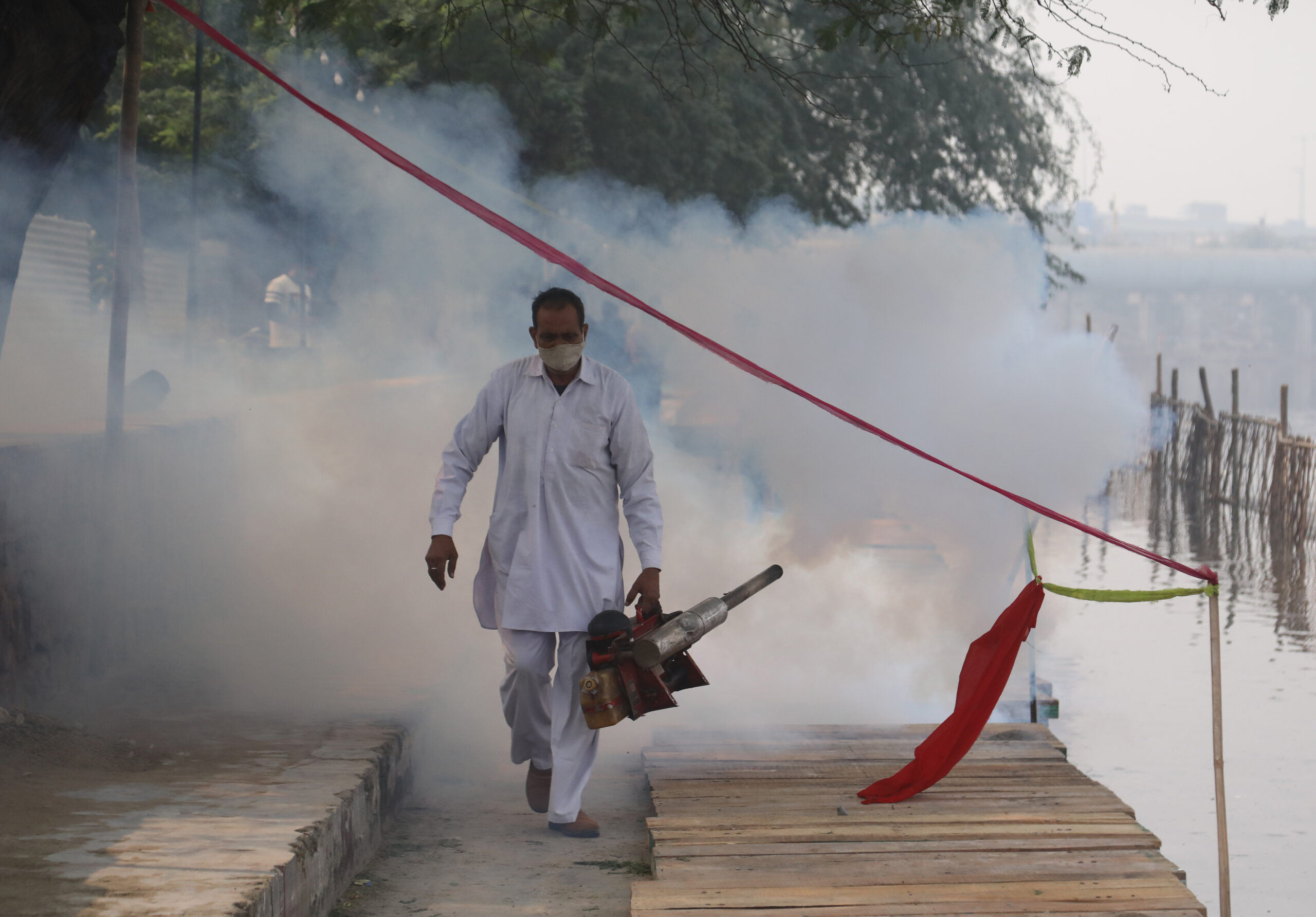Three fresh cases of dengue have been reported in the last one week in Delhi, according to a civic report released on Monday.
The city reported 23 cases in January, 16 in February and 16 this month till March 26.
For the January 1-March 26 period, six cases each were recorded last year and in 2020 and 2019, while ten cases were logged in 2018 and twelve in 2017, the report stated.
Cases of vector-borne diseases are usually reported between July and November, but the period may stretch till mid-December.
Last year, 9,613 dengue cases, the highest number of cases of the vector-borne disease, was recorded in Delhi in a year since 2015, while 23 deaths were also reported.
Meanwhile, South Delhi Municipal Corporation Commissioner Gyanesh Bharti has issued advisory on prevention and control of vector-borne diseases in Delhi, the covic body said in a statement.
The SDMC is the nodal agency for control of vector-borne diseases in the city.
The advisory has been sent to all offices of central, state governments, CPWD, PWD, DDA, Delhi Police, Delhi Jal Board and DMRC.
Registrars of all universities and deemed universities in Delhi, all associations of professionals and all associations of traders and Chambers of Commerce have also been sent the advisory, it said.
Bharti called for prevention of mosquito-breeding at source and made it clear that reduction in breeding is the only effective tool for prevention and control of these diseases.
The municipal commissioner asked the heads of various agencies, including DMRC, DJB, DDA, Delhi Police, PWD, CPWD to nominate “nodal officers” to ensure preventive measures.
The commissioner said this year, there is a need to concentrate more on educational institutions, colleges and schools as they were closed due to COVID-19 crisis, and now they are reopening.
“The designated nodal officer of these institutions must ensure that there is no artificial water collection in open grounds, roofs of buildings, flower pots etc. Also, overhead tanks should be emptied, covered and locked. Unused vehicles like school or college buses should be covered and parked in covered spaces to prevent water collection inside,” he said.
Bharti also requested heads of all agencies to ensure that overhead and other water tanks or containers are kept properly covered with lid, and overflow pipe or air vent are covered with a wire mesh.
Collection of stagnant water should not be allowed inside or around office premises and if the same does take place, a little quantity of kerosene or petrol or diesel may be put over it. Unused, broken bottles, plastic cups, pots and tyres etc. that can hold water should not be left in the open, he said.
He also asked heads of offices to nominate their nodal officers to ensure compliance of advisory and proper prevention and control of diseases by eliminating breeding of mosquitoes across their complex.
The commissioner also mentioned that the Delhi municipal corporation body through laws of 1975 on malaria and other vector-borne diseases provides for an action on failure to take specified prevented measures, and the “failure is punishable”.
“On detection of repeated breeding, besides legal notice, challan, police complaint may be lodged under section 269 of the Indian Penal Code,” the commissioner was quoted as saying in the statement.
Bharti called upon RWAs, market association and the general public to take preventive measures failing which the outbreak of dengue and chikungunya may become uncontrollable.
In the years prior to 2021, the total dengue cases reported were — 4431 (2016), 4726 (2017), 2798 (2018), 2036 (2019) and 1072 (2020), according to the report.
In 2015, the city had witnessed a massive outbreak of dengue, when the number of dengue cases reported has crossed 10,600 in October itself, making it the worst outbreak of the vector-borne disease in the national capital since 1996.
The number of dengue fatalities logged in 2021 was the highest in the national capital since 2016, when the officially reported death count was 10.
Delhi had recorded two deaths due to dengue in 2019, four in 2018, and 10 each in 2017 and 2016. The civic report, released on Monday, also stated that five cases of malaria and eight cases of chikungunya have been reported so far this year in Delhi.
Instagram: https://www.instagram.com/thepatriot_in/
Twitter: https://twitter.com/Patriot_Delhi
Facebook: https://www.facebook.com/Thepatriotnewsindia





